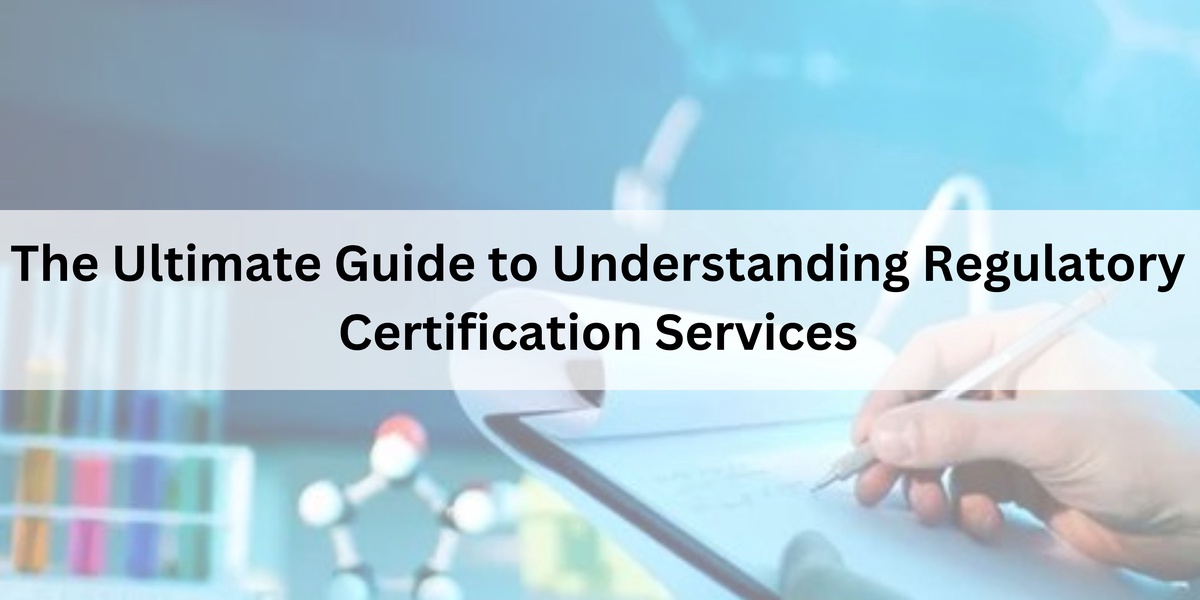In today's global marketplace, businesses face a myriad of regulations and compliance requirements. Navigating through this complex landscape can be daunting, especially when it comes to regulatory certification services. Whether you're a startup or an established enterprise, understanding these services is crucial for ensuring product compliance, market access, and consumer safety. In this comprehensive guide, we'll delve into the intricacies of regulatory certification services, demystifying their importance, processes, and benefits.
What are Regulatory Certification Services?
Regulatory certification services encompass a range of processes and assessments designed to verify that products, systems, or processes comply with relevant regulations, standards, and quality requirements. These services are often provided by accredited third-party certification bodies or agencies recognized by regulatory authorities.
Importance of Regulatory Certification
Legal Compliance: Regulatory certifications ensure that products meet mandatory legal requirements, minimizing the risk of non-compliance penalties, recalls, or legal liabilities.
- Market Access: Certification facilitates market entry by demonstrating compliance with regulatory affairs requirements in target markets, thereby enhancing product acceptance and consumer trust.
- Consumer Safety: Certification validates product safety and quality, reassuring consumers about the reliability and performance of the products they purchase.
- Competitive Advantage: Holding certifications can differentiate your products from competitors, signaling commitment to quality and compliance, thus enhancing brand reputation.
Types of Regulatory Certifications
- Product Certification: This involves assessing products against specific standards or regulations applicable to their industry or market. Examples include CE marking for European markets, FCC certification for electronic devices, and FDA approval for pharmaceuticals.
- Management System Certification: These certifications evaluate the effectiveness of an organization's management systems in meeting certain standards, such as ISO 9001 for quality management or ISO 14001 for environmental management.
- Personnel Certification: This certifies individuals based on their competence, skills, and knowledge in specific fields, ensuring they meet industry standards or regulatory requirements. Examples include certifications for healthcare professionals or safety inspectors.
The Certification Process
- Pre-Assessment: This initial phase involves reviewing documentation, conducting gap analyses, and identifying areas for improvement to ensure readiness for formal assessment.
- Formal Assessment: Certification bodies conduct on-site audits or inspections to evaluate compliance with relevant standards, regulations, or specifications.
- Certification Decision: Based on the assessment findings, the certification body determines whether to grant certification, issue non-conformities requiring corrective action, or withhold certification pending further evaluation.
- Surveillance Audits: Regular follow-up audits are conducted to ensure ongoing compliance and adherence to certification requirements.
Benefits of Regulatory Certification Services
- Enhanced Market Access: Certification facilitates entry into new markets by demonstrating compliance with local regulations and standards.
- Risk Mitigation: Certification helps mitigate risks associated with non-compliance, product recalls, and reputational damage.
- Improved Efficiency: Implementing certified management systems can streamline processes, improve productivity, and reduce costs.
- Consumer Confidence: Certification instills confidence in consumers, fostering trust and loyalty towards certified products and brands.
Conclusion
Regulatory certification services play a vital role in ensuring legal compliance, market access, and consumer safety across diverse industries. By understanding the importance, types, and processes involved in certification, businesses can effectively navigate regulatory requirements, mitigate risks, and capitalize on the numerous benefits that certification offers. Investing in regulatory compliance not only safeguards business interests but also fosters a culture of quality, innovation, and sustainability in today's competitive marketplace.


No comments yet